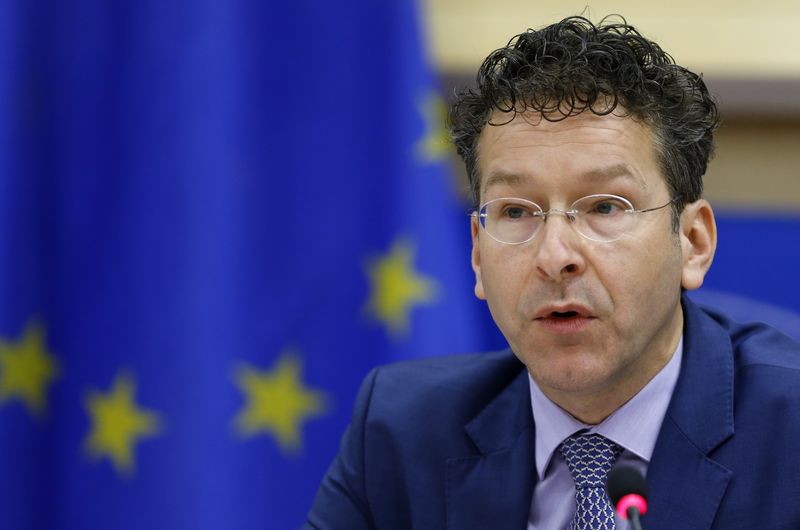By Jan Strupczewski
BRUSSELS (Reuters) - The reform outline sent by Greece to euro zone ministers to unblock loans is "helpful", but needs to be scrutinised by representatives of the country's creditors, according to the head of the Eurogroup of euro zone finance ministers.
Jeroen Dijsselbloem, whose group meets on Monday to discuss Greece, was responding to a letter he received on Friday from the new left-wing government in Athens asking for an immediate resumption of talks with creditors.
It also described seven reforms it wants to launch to achieve goals agreed to by the previous government.
Once steps to reach these goals are taken, Greece would become eligible for more credit from the euro zone and the International Monetary Fund, and its banks could again finance themselves at European Central Bank open market operations.
But time is pressing because Greece will run out of cash later this month.
"This document will be helpful in the process of specifying the first list of reform measures," Dijsselbloem said in a written reply to the Greek letter ahead of Monday's meeting.
Greece's main creditors are euro zone governments and the IMF. They are represented in talks with Athens by three institutions dubbed the troika - the European Commission, the ECB and the IMF.
"The proposals described in your letter will thus need to be further discussed with the institutions," Dijsselbloem wrote in the letter, obtained by Reuters.
"Let me also clarify that in the course of the current review the institutions will have to take a broad view covering all policy areas," Dijsselbloem wrote.
His remarks refer to plans of the new Greek government to replace some of the budget consolidation measures agreed to by the previous government with different reforms.
Euro zone officials say such substitution is fine only if the end result in budgetary terms will be the same.
Greece has asked for the discussions with the institutions take place in Brussels to avoid the connotation of a loss of sovereignty that visits to Athens by troika representatives over the past five years have had for the Greek public.
Even the word troika is anathema to Greeks, hence the references to the institutions.
"We have agreed that the discussions with the joint institutions will take place in Brussels," Dijsselbloem replied to the request. "Technical work to support this process will be done on the ground in Athens."
If Greece reaches an agreement on reforms with the creditors' institutions it could get 1.8 billion euros remaining from the existing 240 billion-euro bailout.
It would also be eligible to get 1.9 billion euros that the European Central Bank made in profits on buying Greek bonds.

"I would encourage you to work in close coordination with the institutions with a view to achieve a speedy and successful conclusion of the review," Dijsselbloem wrote.